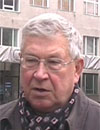 |
||
|
Rosatom Launches Batch Production of MOX Fuel for Fast Neutron Reactor TVEL, PUBLISHED 17.12.2018 The first serial batch of nuclear fuel assemblies for BN-800 fast neutron reactor with mixed uranium-and-plutonium MOX fuel has successfully passed acceptance commissioning. The fuel pellets are manufactured from a mixture of oxides of depleted uranium accumulated at facilities of TVEL Fuel Company of Rosatom, and oxides of plutonium extracted during reprocessing of spent nuclear fuel. Industrial production of MOX fuel at Mining and Chemical Combine (MCC; Zheleznogorsk, Krasnoyarsk region) has been set up under the Federal Target Program, Next Generation Nuclear Power Technologies for 2010-2015 with the outlook till 2020. In order to establish the fuel fabrication facility at MCC, a wide nuclear industry cooperation was established, with the coordination role of TVEL Fuel Company. The basic technology for manufacturing of MOX fuel pellets by mixing powders and applying swirl disintegration with further pressing and sintering was developed by the Bochvar Institute (comprised in TVEL Fuel Company). 'The start of MOX fuel production for BN-800 is an important milestone for solving the strategic task of establishing the closed nuclear fuel cycle, as well as double-component nuclear power industry which would include both thermal and fast neutron reactors. Involvement of the large stock of depleted uranium and bred plutonium into the fuel cycle would enable expansion of the resource base of nuclear power industry and reduction of natural uranium consumption,' commented Konstantin Vergazov, Head of the industrial working group for reaching the projected indicators in MOX fuel production, Senior Vice President of TVEL JSC for R&D, technology and quality. According to experts' assessment, contents of U-238 isotope in natural uranium deposits is about 99.3%, while contents of uranium U-235 (it is used for initiation of controlled fission chain reaction) is just 0.7%. Currently, thermal neutron reactors which comprise the base of contemporary nuclear power industry consume about 1% of the extracted natural uranium, the rest 99% is forwarded to temporary storage, or disposed as the radioactive waste. Fast neutron reactors fuelled by mixed oxides of uranium and plutonium would breed enough plutonium for own needs and producing a certain amount of fuel for other reactors. Recycling of spent nuclear fuel and fabrication of new bundles with uranium-and-plutonium mixture is estimated to ramp up dramatically the volume of electric power which could be potentially generated using natural uranium resources (approximately hundred-fold). Commercial operation of the fourth power unit of Beloyarsk NPP with BN-800 fast neutron reactor was launched in 2016. The reactor facility is aimed at elaborating technologies for closing the nuclear fuel cycle, including full load of MOX fuel in the reactor core. Topics: NFC, Russia, MOX-fuel, Beloayrsk NPP, Fast breeders Other news: 454 nuclear units are operating in the world Another 54 units have the status of the being built one. The MoU was signed at the 9th Session of the High-Level Russia-Singapore Inter-Governmental Commission in Singapore. Nuclear fuel loading has commenced at the 4th power unit of Tianwan NPP On August 25, 2018 the first fuel assembly was loaded into the core of Tianwan NPP Unit 4 in China. |
Hero of the day 
WANO appoints Tom Mitchell as the new WANO Chairman The World Association of Nuclear Operators (WANO), the world's leading safety organisation for commercial nuclear power plants, announced that it has elected Mr Tom Mitchell as the next Chairman of WANO. INTERVIEW
Peter Prozesky OPINION
Victor Murogov |

